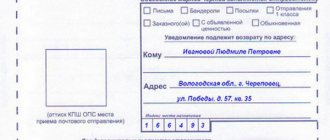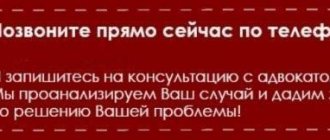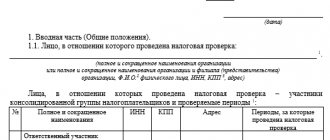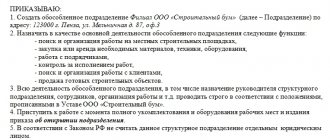Who pays VAT
The answer to the question of who is the VAT payer is contained in Art. 143 Tax Code of the Russian Federation. According to it, VAT taxpayers are:
- legal entities - Russian and foreign companies (paragraph 2, paragraph 2, article 11 of the Tax Code of the Russian Federation);
- individual entrepreneurs (paragraph 4, paragraph 2, article 11 of the Tax Code of the Russian Federation);
- persons moving goods across the customs border.
In most cases, the tax is paid by the seller of goods (services) under the general taxation system. But there are exceptions when the buyer pays the tax as a VAT tax agent. For example, when handing over waste paper. How in this case the invoice and sales book are prepared from the seller, find out in the Typical situation ConsultantPlus. Get trial access and view sample documents for free.
VAT in purchases according to law 44-FZ
The rules of the public procurement law are very strict, but they do not say anything directly about VAT. Therefore, questions arise every now and then: should the tax be included in the NMCC and taken into account when assessing applications and the cost of the contract if the supplier does not pay VAT?
NMCC: with or without VAT
The rules for forming the initial (maximum) contract price are established in Article 22 of the law. However, it is not directly stated whether VAT is included in it. The Ministry of Finance in letter dated August 29, 2014 No. 02-02-09/43300 says that the customer can set the price taking into account all expenses, including mandatory payments .
Registration in ERUZ EIS
From January 1, 2020 , in order to participate in tenders under 44-FZ, 223-FZ and 615-PP, registration in the ERUZ register (Unified Register of Procurement Participants) on the EIS (Unified Information System) portal in the field of procurement zakupki.gov.ru is required.
We provide a service for registration in the ERUZ in the EIS:
Order registration in the EIS
There is a practice according to which the contract price is indicated taking into account all expenses. That is, when forming a price, the customer should include VAT in it . Participants' price proposals must also contain the full amount of costs for purchasing the item being purchased, including VAT.
But there are a number of goods and services that are not subject to VAT. An example would be software. When requesting its purchase, customers do not include tax in the price. Suppliers also offer prices excluding tax.
Classification of VAT payers
All VAT payers can be divided into 2 groups:
- taxpayers within the country paying tax on the sale of goods (work, services);
- taxpayers paying tax when importing goods at the customs border.
The group of taxpayers of import VAT is significantly larger than taxpayers of internal tax, since almost all persons when importing goods are payers of VAT, while not all business entities pay internal tax.
When VAT taxpayers are government agencies
The current version of the Tax Code of the Russian Federation does not contain norms according to which state and municipal bodies are VAT payers (Article 143 of the Tax Code of the Russian Federation). However, there is a list of actions during which state and municipal institutions can be recognized as such:
- if the institution does not act on behalf of a public legal entity, but acts as an independent economic entity (Article 125 of the Civil Code of the Russian Federation);
- the action is carried out in one’s own interests, and not as a performance of the functions of a public legal entity.
Such conclusions are contained in paragraph 1 of the resolution of the Plenum of the Supreme Arbitration Court of the Russian Federation dated May 30, 2014 No. 33.
If you rent state property or bought real estate from the municipality, you are the one who is required to pay the tax, since you are the tax agent. ConsultantPlus experts explain with examples how to correctly calculate the amount of tax and reflect it in accounting and tax accounting. Get a free trial and proceed to the Typical Situation.
VAT taxpayers moving goods across the customs border
When importing goods into the territory of the Customs Union, persons are recognized as VAT payers only if this is provided for by the current legislation of the Customs Union and the legislation of the Russian Federation on customs affairs (paragraph 4, paragraph 1, article 143 of the Tax Code of the Russian Federation). The territory of the Customs Union in 2022 includes the territories of 5 countries: the Republic of Belarus, the Republic of Kazakhstan, the Russian Federation, the Republic of Armenia, and the Kyrgyz Republic. Tax calculation and payment is carried out in accordance with tax legislation, the Customs Code and the Law “On Customs Regulation in the Russian Federation” dated November 27, 2010 No. 311-FZ.
VALUE ADDED TAX: TAXPAYERS, OBJECTS OF TAXATION AND RATES
Value added tax is an indirect tax that is calculated upon the sale of goods, works, services, and property rights to the buyer. VAT payers are:
- organizations;
- individual entrepreneurs (IP);
- persons recognized as VAT payers in connection with the movement of goods across the customs border of the Customs Union, determined in accordance with the customs legislation of the Customs Union and the legislation of the Russian Federation on customs affairs.
The main object of taxation is transactions for the sale of goods (works, services), property rights on the territory of the Russian Federation.
The supporting document is the invoice.
According to Art. 169 of the Tax Code of the Russian Federation (hereinafter referred to as the Tax Code of the Russian Federation), an invoice is a document that serves as the basis for the buyer’s acceptance of goods (work, services), property rights presented by the seller (including the commission agent, agent who sells goods (work, services), property rights on your own behalf) tax amounts to be deducted.
Article 172 of the Tax Code of the Russian Federation states that tax amounts presented by sellers when the taxpayer purchased goods (work, services), property rights, or actually paid by him when importing goods into the territory of the Russian Federation and other territories under its jurisdiction, after the adoption to record the specified goods (works, services), property rights.
The following transactions are also recognized as objects of taxation:
- transfer of goods on the territory of the Russian Federation (performance of work, provision of services) for one’s own needs, expenses for which are not deductible (including through depreciation charges) when calculating corporate income tax;
- carrying out construction and installation work for own consumption;
- import of goods into the territory of the Russian Federation and other territories under its jurisdiction.
VAT rates:
- 20 % — from 01/01/2019 in accordance with the amendments made to the Tax Code of the Russian Federation by Federal Law dated 08/03/2018 No. 303-FZ (as amended on 10/30/2018) “On amendments to certain legislative acts of the Russian Federation on taxes and fees” (18 % - until 2022);
- 10 % - used in the sale of agricultural products, some goods for children, printed products, etc.);
- 0 % — export of goods, goods under the customs procedure of a free customs zone, etc.
Individual entrepreneur - VAT payer
When a person registers with the tax authorities as an individual entrepreneur, he automatically has the obligation to calculate and pay VAT amounts to the budget and submit a VAT return, unless he has submitted an application for the application of one of the special regimes from the moment of registration.
An entrepreneur ceases to be a VAT payer when the general taxation regime assigned to a first-time registered entrepreneur by default is changed to special regimes - USNO, UTII, Unified Agricultural Tax.
ATTENTION! UTII has been abolished throughout Russia since 2022, and some regions abandoned the special regime back in 2022. We described the details in the material “Cancellation of UTII in 2022: latest news, changes from January 1, 2022.”
An individual entrepreneur, being a VAT payer, can also receive an exemption from the obligation to pay this tax on the basis of Art. 145 Tax Code of the Russian Federation.
See also the material “How to obtain VAT exemption in 2020-2021?”
An entrepreneur under any tax regime is obliged to pay import VAT when crossing the customs border (Article 143 of the Tax Code of the Russian Federation).
Don't have to pay
Legislators have designated a circle of persons who are exempt from calculating and paying value added tax. So, only two groups of economic entities are not recognized as VAT payers:
1. Organizations and entrepreneurs applying special tax regimes (STS, Unified Agricultural Tax, UTII, PNS). It is worth noting that the exemption applies only to those types of activities that are taxed under special regimes. For example, when combining the main taxation system and the special regime, a fee will have to be calculated. But only within the framework of activities taxable under OSNO.
IMPORTANT!
These conditions apply only to transactions carried out on the territory of the Russian Federation. If an economic entity imports goods, works, services from abroad, then it automatically becomes a VAT payer in relation to import transactions.
2. A number of economic entities whose activities are related to the preparation and holding of the FIFA World Cup (2018), as well as the Confederations Cup championship in 2022. Such provisions are outlined in Article 143 of the Tax Code of the Russian Federation.
Please note that for this category of subjects, exemptions apply to all types of transactions performed both on the territory of the Russian Federation and abroad.
Organization - VAT payer
As a general rule, all organizations are payers of internal VAT. However, the Tax Code of the Russian Federation regulates cases of exemption from execution of tax payments (Articles 145 and 145.1 of the Tax Code of the Russian Federation).
See here for details.
Exemption from duties is granted for a specified period and subject to certain conditions. This rule applies only to internal VAT.
If a person is not a VAT payer, then he does not pay internal VAT, but is required to pay VAT upon import. The rights to deduct VAT for these persons are also lost (subclause 3, clause 2, article 170, subclause 1, clause 2, article 171 of the Tax Code of the Russian Federation).
Persons who apply:
- USNO (clauses 2 and 3 of Article 346.11 of the Tax Code of the Russian Federation);
- until 01/01/2021 - UTII in relation to the type of activity falling under UTII (clause 4 of Article 346.26 of the Tax Code of the Russian Federation);
- PSN (clause 11 of article 346.43 of the Tax Code of the Russian Federation).
However, if persons who are not VAT payers or exempt from paying VAT issue invoices with a separate tax, the obligation to pay VAT arises (Clause 5 of Article 173 of the Tax Code of the Russian Federation).
Find out if there is a VAT exemption for agricultural producers here.
Payment of VAT by non-profit organizations
Federal Law No. 7-FZ of January 12, 1996 “On Non-Profit Organizations” defines that a non-profit organization is an organization that does not have profit as the main goal of its activities and does not distribute the profits received among its participants. Such organizations can be created to achieve social, charitable, cultural, educational, scientific and managerial goals, to protect the health of citizens, as well as for other purposes aimed at achieving public benefits.
it is important
Funds that a non-profit organization received as targeted income from legal entities are not included in the VAT tax base if their receipt is not related to the sale of goods, performance of work or provision of services.
Let us note that a non-profit organization can engage in entrepreneurial activity only insofar as it serves to achieve the goals for which it was created. Let us consider the procedure for paying VAT by such organizations.
"Non-commercial" VAT
The Tax Code does not contain special rules for assessing VAT for non-profit organizations. In accordance with Article 143 of the Tax Code, they are VAT payers. This means that even if there is no taxable object, they are required to submit a VAT return to the tax authorities at least once a quarter (Article 174 of the Tax Code of the Russian Federation).
In accordance with subparagraph 1 of paragraph 1 of Article 146 of the Tax Code, the object of VAT taxation is transactions on the sale of goods (work, services) on the territory of the Russian Federation, including the sale of collateral and the transfer of goods (results of work performed, provision of services) under an agreement to provide compensation or novation, as well as transfer of property rights.
At the same time, when determining the tax base, funds in the form of targeted revenues for the maintenance of non-profit organizations and the conduct of their statutory activities, which were received as financial assistance from other organizations and (or) individuals, not related to payment for goods sold (works, services) are not taken into account ) and used by the specified recipients for their intended purpose.
VAT paid to suppliers when purchasing goods (property, work, services) using earmarked funds is not deductible. After all, these goods (property, work, services) will be used to carry out non-commercial (statutory) activities that are not related to receiving proceeds from the sale of goods (work, services), that is, in transactions not subject to VAT. Therefore, amounts of input VAT must be included by non-profit organizations in the cost of such goods (work, services) on the basis of subparagraph 1 of paragraph 2 of Article 170 of the Tax Code. In fact, the tax amounts are covered by earmarked funds.
Conducting business activities
For business activities, non-profit organizations must form a tax base for VAT in the generally established manner.
At the same time, non-profit organizations must keep separate records of transactions subject to and exempt from VAT. Accounting for the receipt and expenditure of targeted revenues, according to the approved estimate, must be carried out separately from activities that are subject to VAT taxation (business activities).
Paragraph 4 of Article 170 of the Tax Code determines the procedure for accounting for tax amounts presented by sellers of goods (works, services), property rights to taxpayers carrying out both taxable and VAT-exempt transactions. Thus, the amounts of input VAT are taken into account in the cost of purchased goods (works, services) if they are used to carry out operations that are not subject to value added tax.
Use of indivisible property
Non-profit organizations often use indivisible property and purchased works and services in both taxable and non-VAT-taxable transactions. In this case, tax amounts are accepted for deduction or taken into account in the cost of purchased goods (work, services) in the proportion in which they are used for the production and (or) sale of goods (work, services) subject to VAT or exempt from taxation.
attention
Input VAT paid on the purchase of goods can be deducted provided that they are acquired through business activities and will be used in business activities, as well as when the requirements of Articles 171 and 172 of the Tax Code are met.
The organization itself determines the method of reflecting input VAT in its accounting policies in accordance with paragraph 4 of Article 170 of the Tax Code.
Note that in the absence of separate accounting, a non-profit organization loses the right to tax deduction of input VAT on goods (work, services) purchased as part of commercial activities and used in transactions subject to VAT.
document
Memo for an accountant of a non-profit organization
- Non-profit organizations are VAT payers and are required, even in the absence of taxable transactions, to submit a VAT return to the tax authorities.
- When carrying out, along with statutory entrepreneurial activities, such organizations are required to keep separate records of the receipt and expenditure of property by type of activity.
- Since operations carried out at the expense of received target funds and within the framework of statutory activities are not subject to VAT, the amount of tax paid to suppliers is taken into account in the cost of goods (work, services).
- Transactions carried out within the framework of business activities are taxed in the generally established manner and the amount of VAT paid to suppliers when purchasing goods (works, services) is deducted from the budget.
- When using goods (works, services) in two types of activities, statutory and entrepreneurial, the amounts of VAT paid to suppliers are distributed in proportion to the amount of their use in each type of activity.
O. Vasilyeva , auditor of JSC Gorislavtsev and Co.
Stay up to date with the latest changes in accounting and taxation! Subscribe to Our news in Yandex Zen!
Subscribe
Results
All organizations and individual entrepreneurs on the general taxation system (except for those specified in paragraph 3 of Article 143 of the Tax Code of the Russian Federation) are VAT payers, and in some cases, state and municipal institutions may also be recognized as payers. When importing goods, even organizations and individual entrepreneurs that use special regimes or are exempt from VAT are required to pay VAT.
Sources: Tax Code of the Russian Federation
You can find more complete information on the topic in ConsultantPlus. Free trial access to the system for 2 days.





